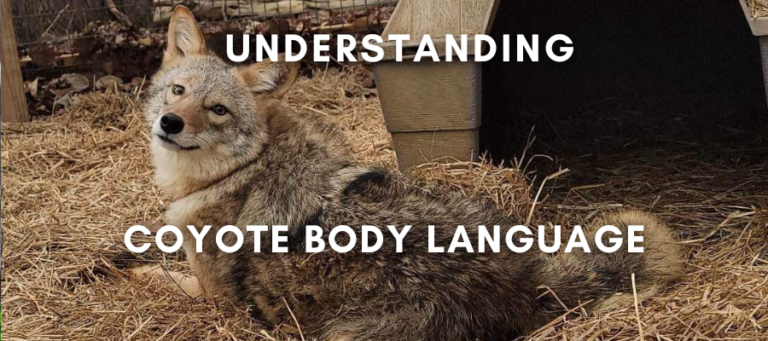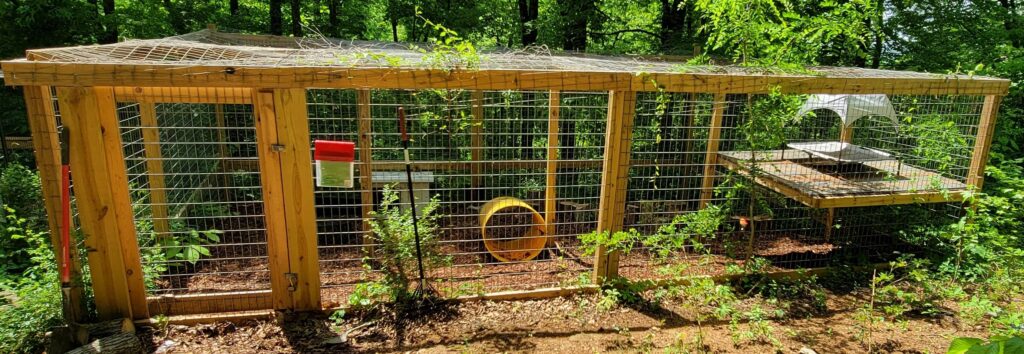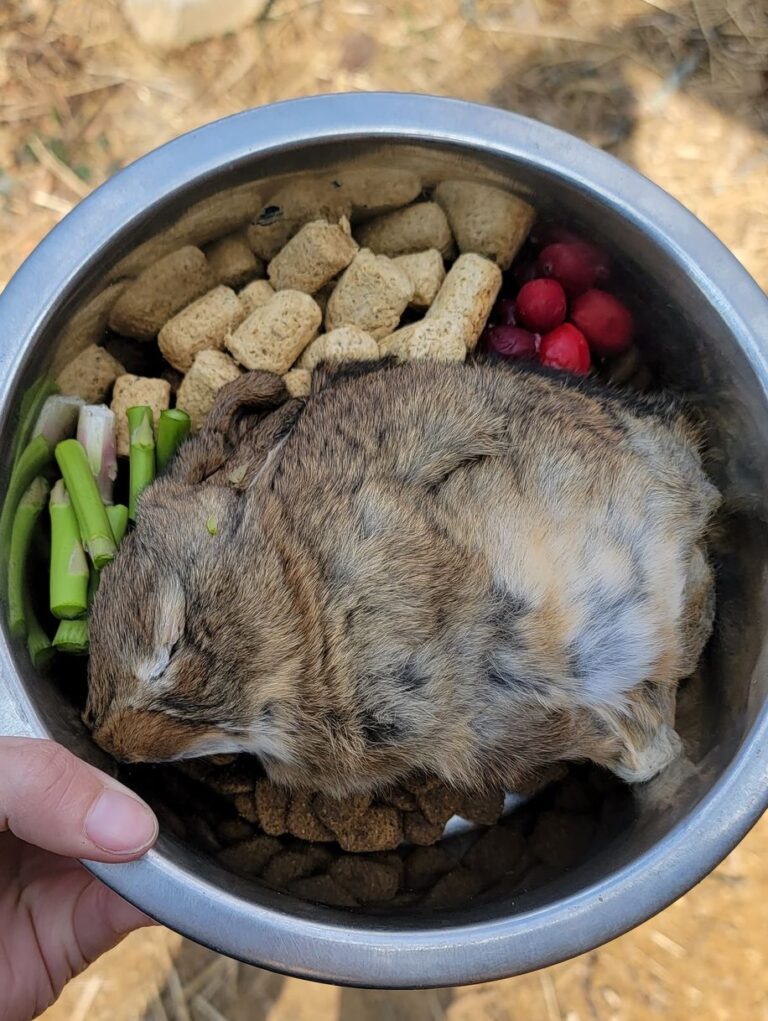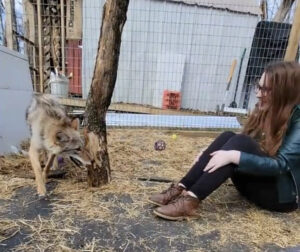
Home » Exotic Pet Care Guides » Pet Coyote Care Guide
Pet Coyote Care Guide
Authors: Linsey Hembree and Nessie O'Neil
Sharing your life with a pet coyote can be beautiful chaos or a living nightmare all depending on your expectations. They aren’t an animal that everyone should have, but if you are interested in learning about what it takes to care for and share your life with a pet coyote, you’re in the right place.

Table of Contents
Is owning a pet coyote legal in your state? Before you consider keeping a coyote as a pet, you should investigate its legality. Not every state permits owning a coyote, and even if they do, there might be restrictions imposed by your city, county, or even homeowners association (HOA). If you encounter a wild coyote in distress, promptly locate a rehabilitator. You can contact your local wildlife department or download Animal Help Now to find rehabbers. Do not keep a wild coyote as a pet. Not only is this harmful to the animal, but it is also extremely illegal in must jurisdictions.

Enclosures for Pet Coyotes
Coyotes are not suitable as house pets and require a spacious and secure outdoor enclosure to fulfill their high energy needs. Without proper outlets, they will become highly destructive. Pet coyotes also do not potty train. To ensure the safety of your coyote, we strongly advise constructing a complete top and bottom enclosure. Coyotes are adept climbers, jumpers, and diggers, and if someone spots your coyote roaming freely, there is a significant risk that it will be killed due to fear.

Coyote Enclosure Basic Requirements
- The enclosure must have a full top and bottom. The top can be either a full roof or welded wire, and the bottom needs to be either buried welded wire, concrete, or wood.
- The ABSOLUTE MINIMUM size for a pet bobcat enclosure is 24x24x12. as they need lots of space, and the taller the better as long as you can build them structures to play on, because what cat doesn’t like heights?
- Make sure all wire used is at least 8 gauge at a minimum. Cages with wire thinner than that or with holes any larger than 2×4 inches isn’t escape proof or safe.
- A double opening, or catch door, is necessary to help keep your coyote safe.
Pet Coyote Diets
If you decide to have a pet coyote, ensure that you are prepared to provide them with healthy and appropriate meals.
Coyotes require a predominantly raw meat-based diet, as they are not domestic canines. Although you can offer them some dog kibble as a snack, they still need a balanced raw meal on a daily basis because kibble alone does not fulfill all their nutritional needs.
While coyotes are omnivores, their diet primarily consists of meat, which should make up around 85-90% of their overall intake. Out of this percentage, approximately 10% can consist of raw bones, 5% should be liver, and another 5% should comprise other forms of offal, such as kidney, spleen, or pancreas. The remaining portion of their diet can include vegetables, fruits, and eggs.

Pet Coyote Vet Care
Just like any other animal you choose to keep as a pet, it is essential to your coyote with proper veterinary care. Before acquiring a coyote as a pet, it is crucial to ensure that you have a veterinarian in your area who is willing to treat your animal. Although coyotes are closely related to domestic dogs, regular veterinarians or even exotic pet specialists may not have experience with them. Conduct thorough research to find a veterinarian who specializes in zoological medicine and has expertise in treating large exotic pets.
Vaccines for Coyotes
There are two important vaccines that your pet coyote requires: the DHPP vaccine and the rabies vaccine. The DHPP vaccine protects your pet coyote against Distemper, Adenovirus, Parainfluenza, and Parvovirus. The rabies vaccine, as the name implies, safeguards them against rabies. Additionally, having your pet coyote spayed or neutered can assist in addressing certain behavioral issues and concerns such as marking. It is important to note that spaying or neutering will not stop this behavior completely.
Spaying and Neutering Coyotes
Having your pet coyote spayed or neutered can assist in addressing certain behavioral issues and concerns such as marking. It is important to note that spaying or neutering will not stop this behavior completely.

Pet Coyote Resources

Did you enjoy our pet coyote care guide?
If you enjoyed our care guide, please consider donating! Exotic Pet Wonderland is a nonprofit 501(c)3 animal sanctuary that requires donations to keep our sanctuary running. We work hard to create these care guides, and would like to no longer have to rely on ads to keep our site running. If you are interested in helping us further our goal to provide homes for and educate about captive-bred wildlife, your donation would be greatly appreciated!
More Exotic Pet Care Guides

Phone: 865-236-7596